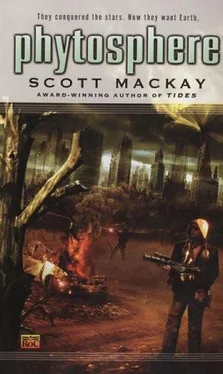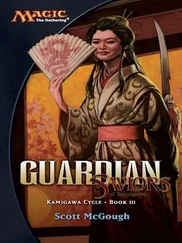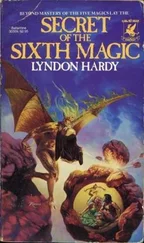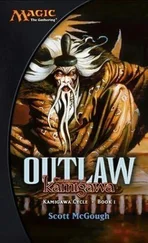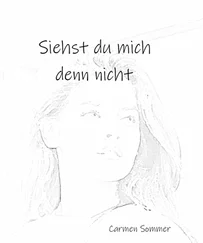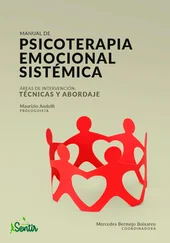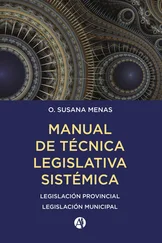“Mitch, we’re sorry,” said Gerry.
“Think of the phytosphere.”
The dark, ugly thing that was suffocating Earth.
“Right… right. Go ahead, Mitch.”
“With me out of the picture, it means a lot more work for the two of you. Which in turn means new procedures. And if this virus thing keeps evolving, the framework for those procedures will constantly change.” His voice was high, tremulous. “You’ve got to work the procedures up fast, because this thing might balloon exponentially.”
And Gerry had to hand it to Mitch, because he went out like a hero, detailing the kinds of things they would have to do if they were going to get the mission accomplished against this increasingly growing threat, giving them guidelines and new timetables, interfacing with the PCV’s main computer to model fresh mission dynamics, and at last logging the whole thing into the mainframe. Only then did Mitch get weepy. Only then did Gerry and Ian loosen their hold on their own grief.
Gerry asked Mitch if he could still see Gaspra.
“I’m facing away.”
“Buddy, we’re going to miss you.” Ian’s voice was rough.
And it was true. Mitch was one of a kind.
They covered a few more technical possibilities, contingencies, and what-if scenarios, then Mitch’s voice got quiet. It was if the small man could already see the end of his life, was watching hours turn into minutes, minutes into seconds—those finite units of time that everyone had to measure eventually.
“You guys… make it count… that’s all I ask. And if you see Norbert… if he’s still alive… just tell him… you know.”
“We’ll tell him,” said Gerry.
And rather than drift toward Jupiter for the next seventeen hours—the remaining extent and breadth of his current life support—Mitch had his med-pak deliver an untenable dose of barbiturates to him intravenously, even as the Tarsalan infection in the PCV and its external components ballooned—as the small man had feared it would—exponentially.
As Glenda and her children ventured onto the final stretch of Marblehill Road, Hanna’s breathing grew more labored. Her coughing exploded into the still, hot air like small pneumatic reports. The trees in the forest loomed over them on either side, dead brown things. No cars, trucks, or people, just the awful silence. Glenda could barely see her kids in the dark. She looked up at the sky. No stars, Moon, or clouds—just the blackness of the phytosphere.
Hanna sank to the ground and coughed more violently. Jake kept looking down the road, gun held loosely in his hand. Glenda knelt next to Hanna. The perpetual darkness felt like something evil inside her body, a tumor she wanted to remove but couldn’t.
“Hanna, we’ve got to keep going.”
“I’m too weak, Mom. It’s never been like this before. I’m going to die. I know I am.”
“You’re not going to die. We just have to get to Uncle Neil’s. He has medicine.”
“Yes, but I can’t make it. I can’t get enough breath.”
“Get between me and Jake. We’ll help you along.”
“I can’t, Mom.”
“You’ve got to, Hanna. Buzz is going to come along.”
Hanna coughed some more, then choked out the words, “Just give me a minute.”
While Hanna rested, Glenda stood up and turned on her flashlight. She shone it up the road toward Marblehill, but its beam was weak and could barely penetrate the gloom. Still, it was strong enough to brighten a big tree that had fallen across the road. As the beam brought the tree’s spidery brown branches into relief, she had the distinct impression of something darting by overhead in the darkness.
She looked up just in time to see a large shadow, maybe twenty-five times the size of her car, disappear above the trees on the left-hand side, rustling above the uppermost branches.
“Did you see that?” she asked Jake.
“Yeah.”
“What was it?”
“I have no idea.”
But Glenda knew what it was, and didn’t want to say because her children were already scared enough as it was. She switched off the flashlight. She looked around at the dark forest with a sudden sense that they weren’t alone. That’s when she heard the bump and rattle of Buzz’s truck far down the road.
“Goddamn him,” moaned Hanna between coughs.
“Come on, sweetie. Let’s get up. Jake, give me a hand.”
“Maybe we should go into the forest,” suggested Jake.
“I’m not sure it’s safe.”
“Why?”
“Just give me a hand.”
They each took one of Hanna’s arms and lifted her to her feet. They struggled along with her as best they could, but she kept stumbling and they made slow progress. Glenda opened her eyes wide, something that was habitual now as a way to see as much as she could in the perpetual dark, and something that made her temples ache with a low throb.
She could barely see the left and right shoulders of the road. Her feet crunched through the gravel.
Hanna started crying, getting her weeping done in between her explosive coughing. The bump and rattle of Buzz’s truck got closer, the signature sound particularly noticeable on this potholed road. Glenda had the sense that she had already lost, and that dragging her daughter up this lonely rural road in the middle
of this perpetual night would be the last thing she would ever do. The futility of her situation made her want to weep, but she found that, despite these self-defeating feelings, her body kept going, as if it had an internal agenda for survival and couldn’t be bothered with the emotional fuss her mind was making.
“I don’t see his headlights,” said Jake.
“He’s behind that hill,” said Glenda. “He’ll be coming over the rise any second. Just keep going.”
They struggled and struggled, and finally came to the fallen tree in the middle of the road. The tree was huge and tinder-dry, and all the leaves had fallen off its branches.
“Let’s go around the left side,” she said.
She and Jake helped Hanna around to the left just as Buzz came over the rise. The dead branches, still thick, scratched her.
“Just push your way through. Hurry up. Hanna, lift your leg over the trunk.”
“I can’t see it, Mom.”
Glenda turned on the flashlight. “There.”
Her daughter climbed over the trunk, but it was as if death had already come to Hanna because, once on the other side, she collapsed.
“Just leave me here. Let him kill me. Maybe that will satisfy him. You two go ahead.”
“Hanna, come on, get to your feet,” said Glenda, her voice now panicked. “He’s nearly here.”
“I can’t, Mom. I really can’t.”
And she simply lay there on her side coughing, too weak to move.
“Jake, let’s drag her.”
But Jake was looking over the tree. “I’m going to take him out.”
“No, no… not with a handgun. Not from this range. You’ll waste bullets like you did last time. Just grab her and let’s go.”
They dragged her—literally—so that her jeans scraped along the gravel and kicked up a small cloud of dust. Buzz’s truck rattled to a stop on the other side of the fallen tree, and she heard Buzz open the door and get out of the vehicle. She didn’t look back, couldn’t look back, because her eyes were glued to the sky above the road, where she saw the dark shape again—huge, hovering silently, with no lights, no visible means of propulsion. Now that she listened more closely, she heard a faint hiss, like water being sucked down a drain.
The headlights on Buzz’s truck shone through the dead branches of the fallen tree, making a wild tracery of shadows all over the road. She glanced at Jake and saw that he was outlined in the branch-broken glow of Buzz’s headlights. But it was as if he didn’t care, because he was looking up at the Tarsalan vehicle as well.
Читать дальше
